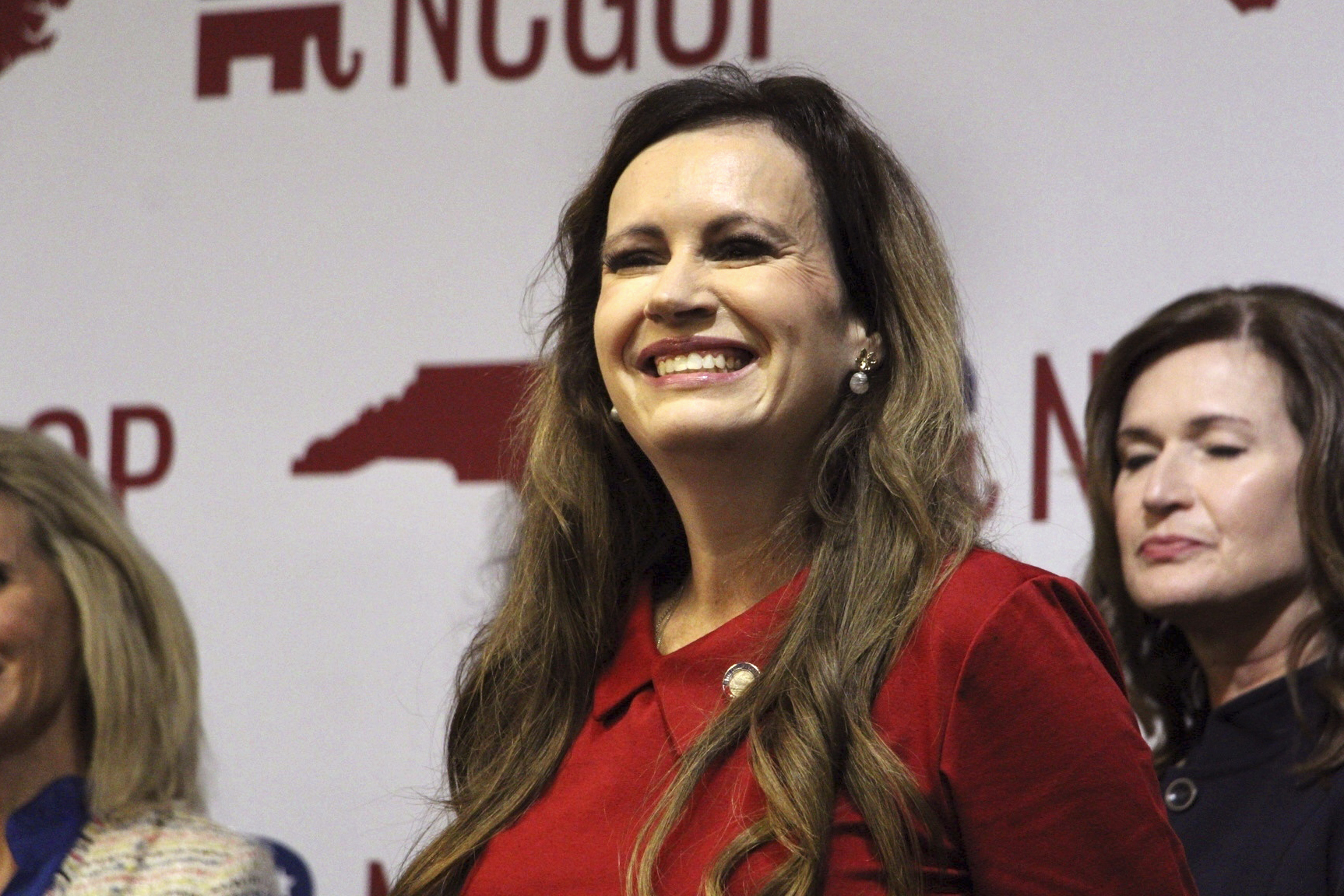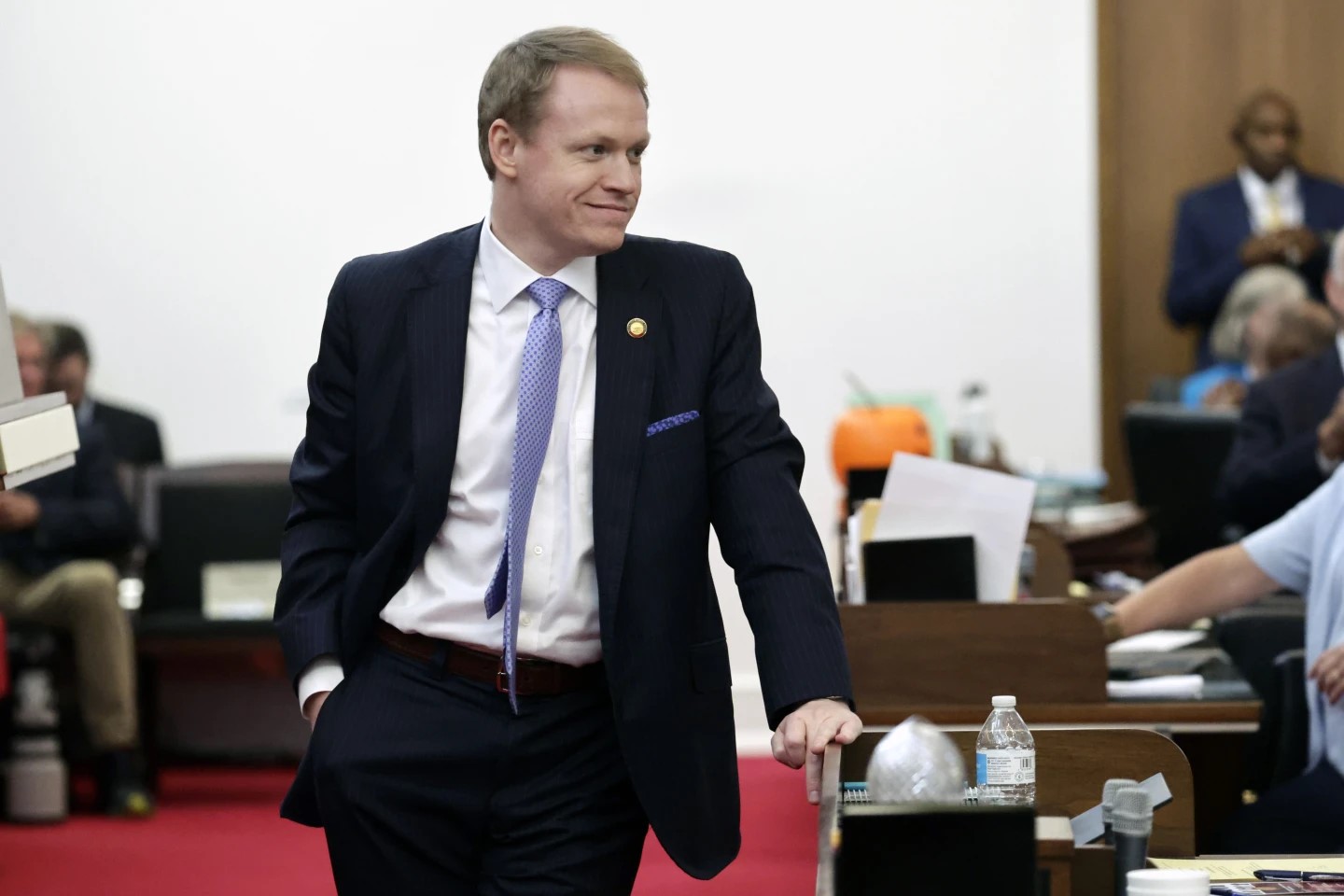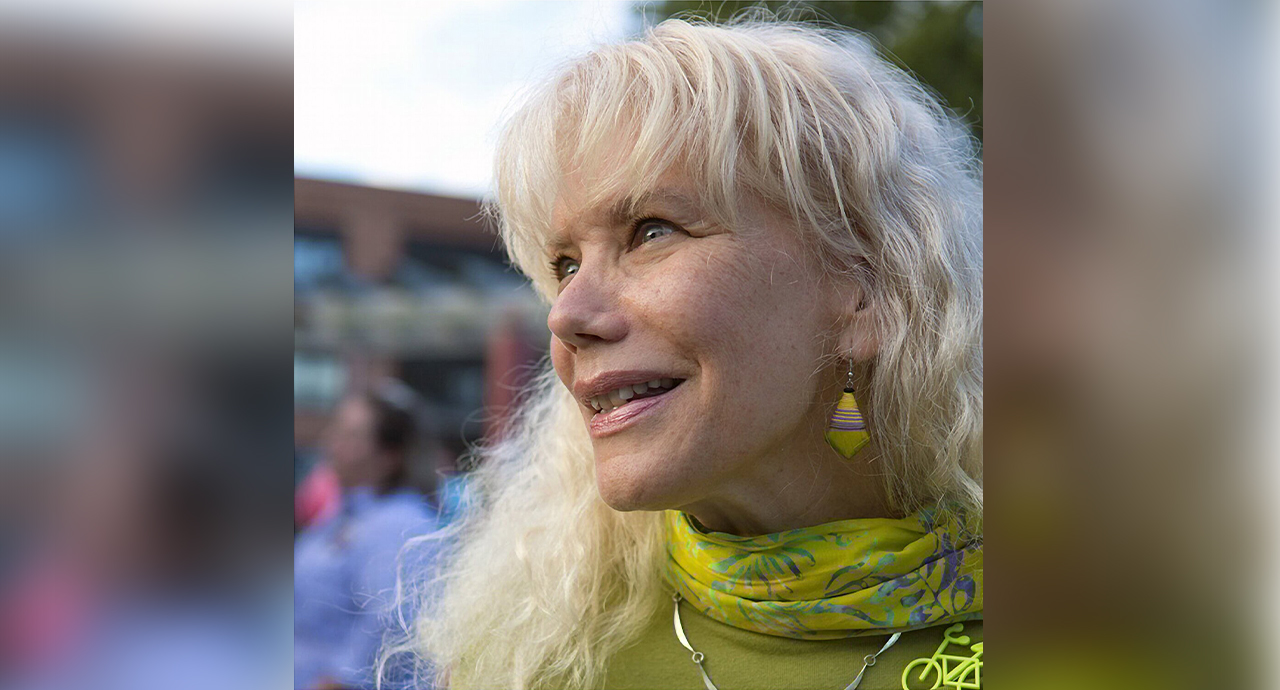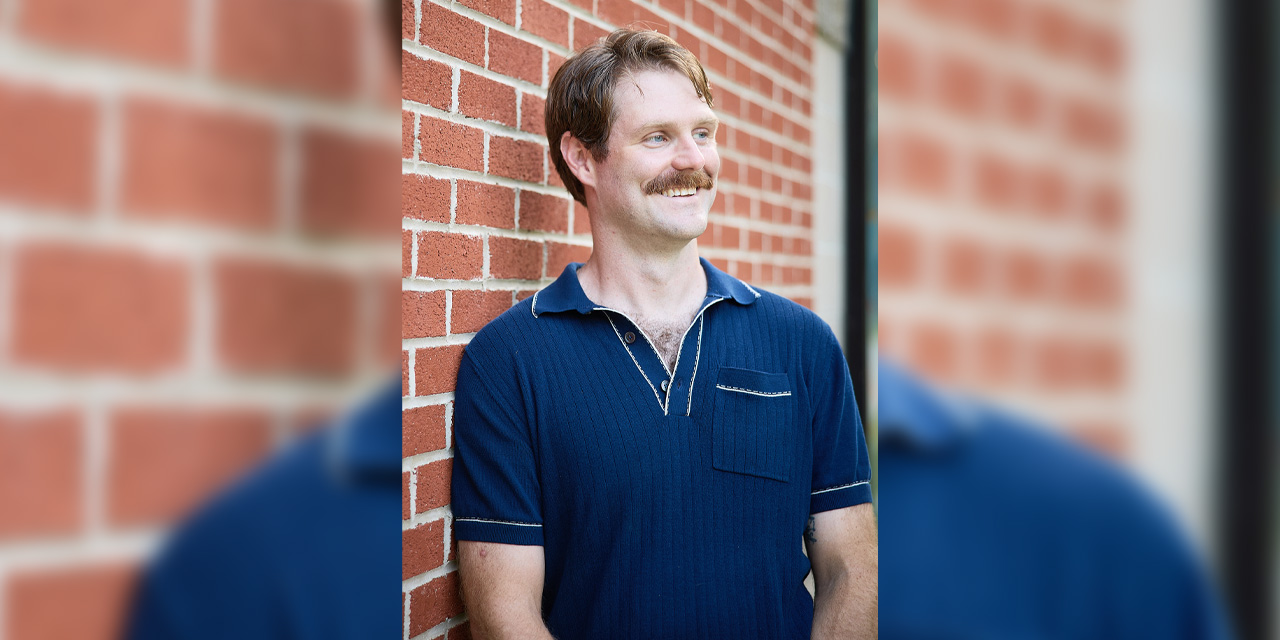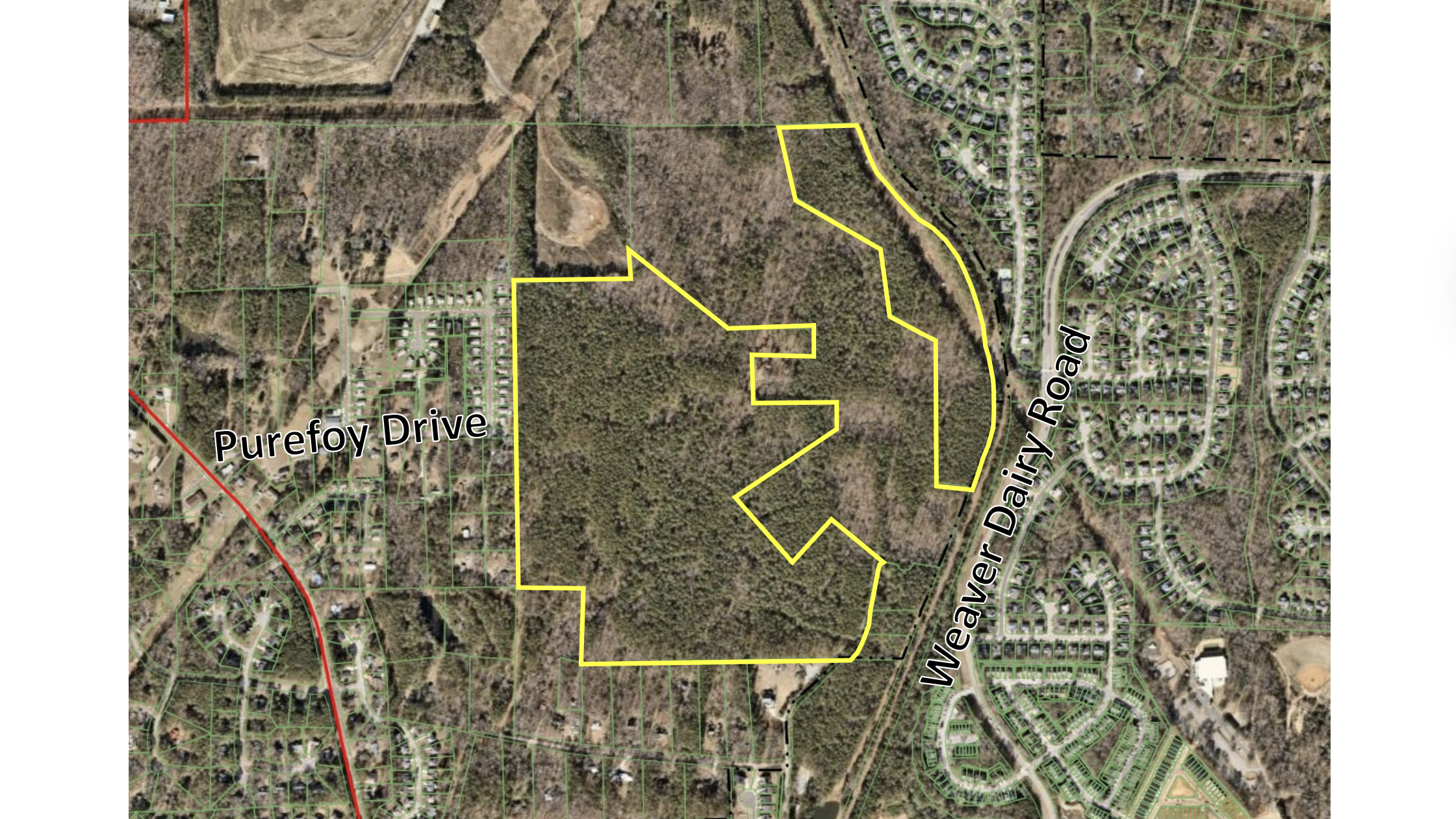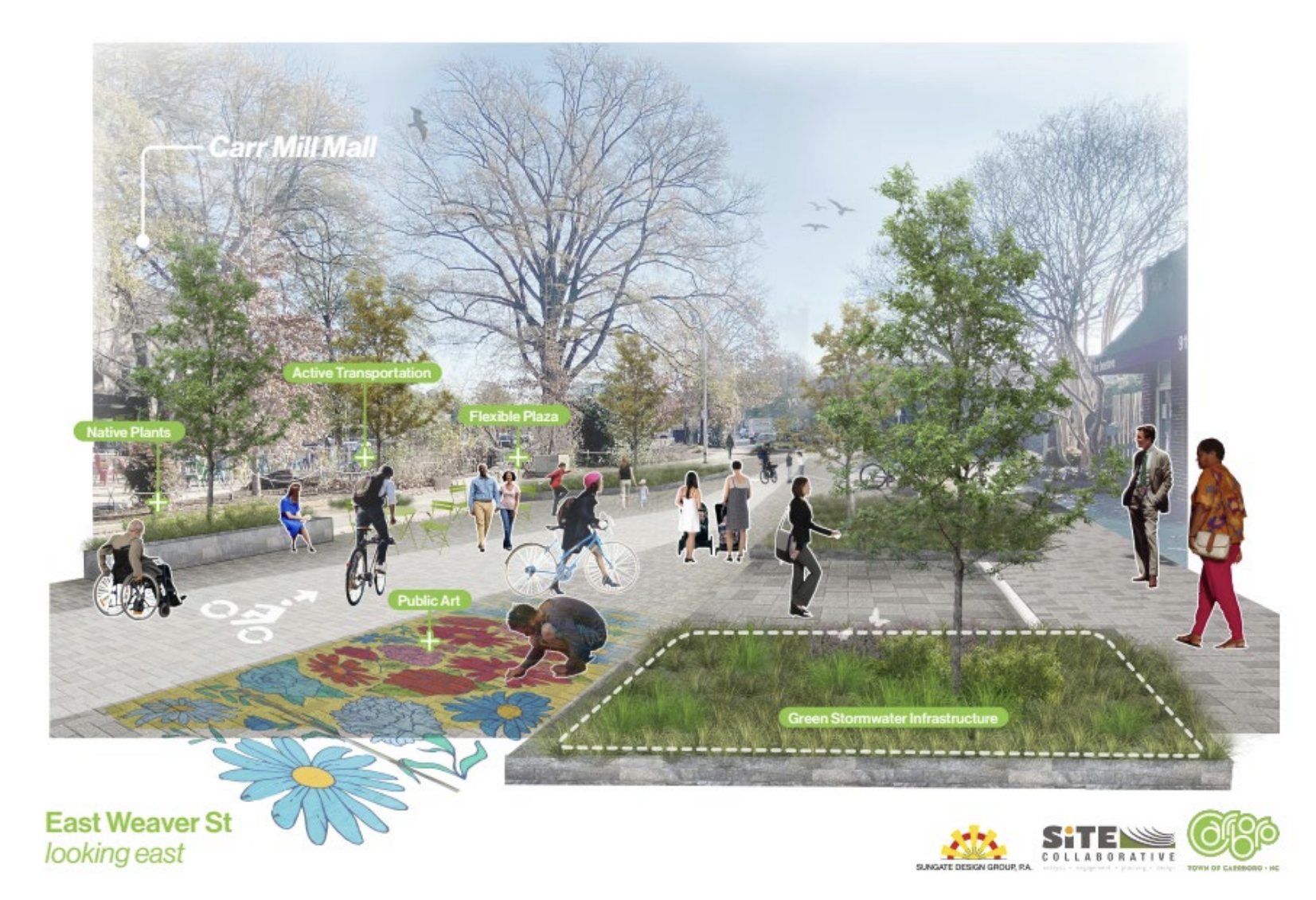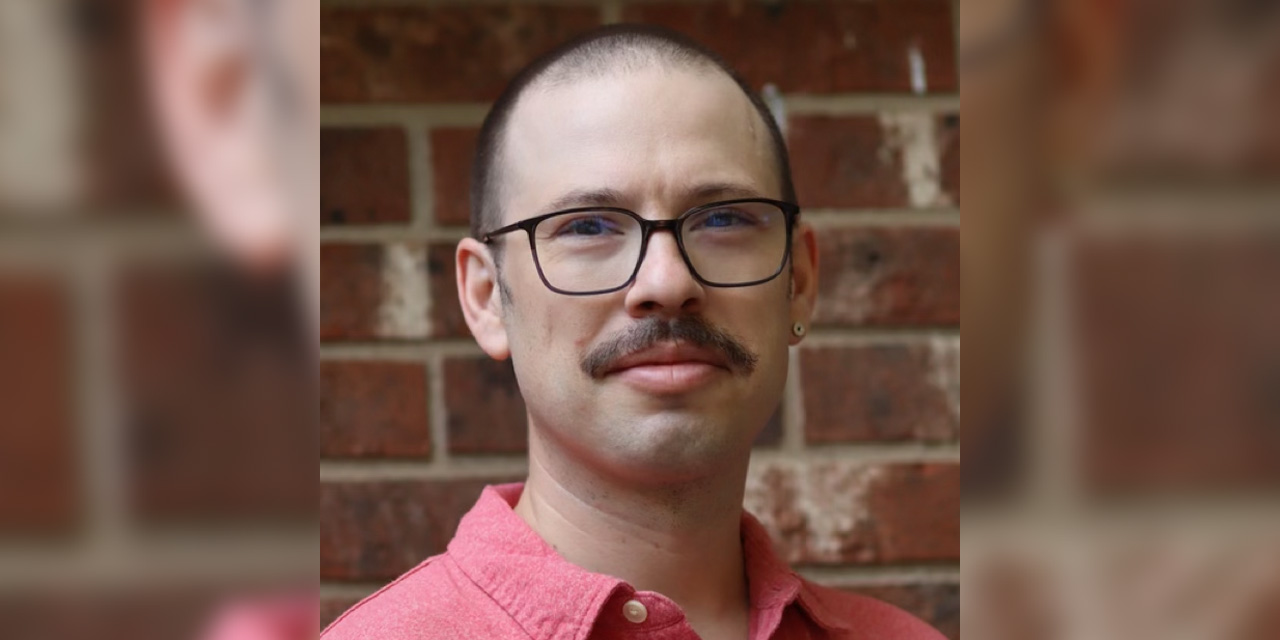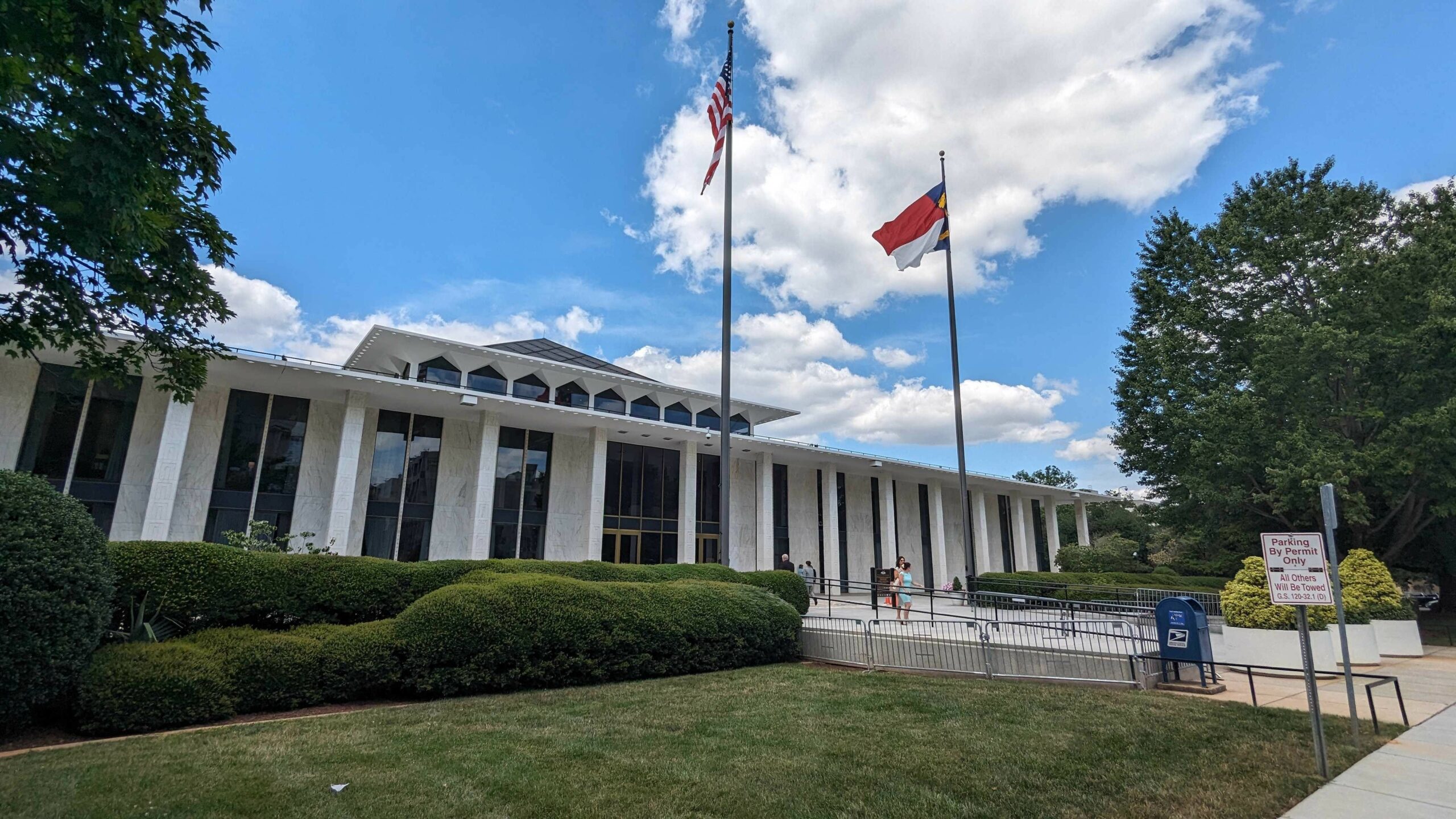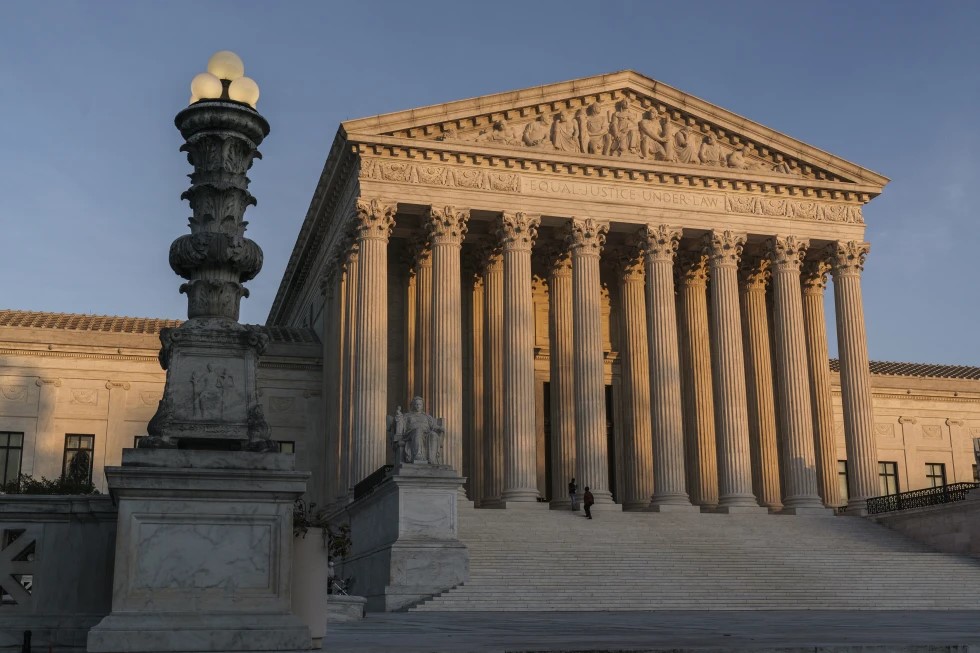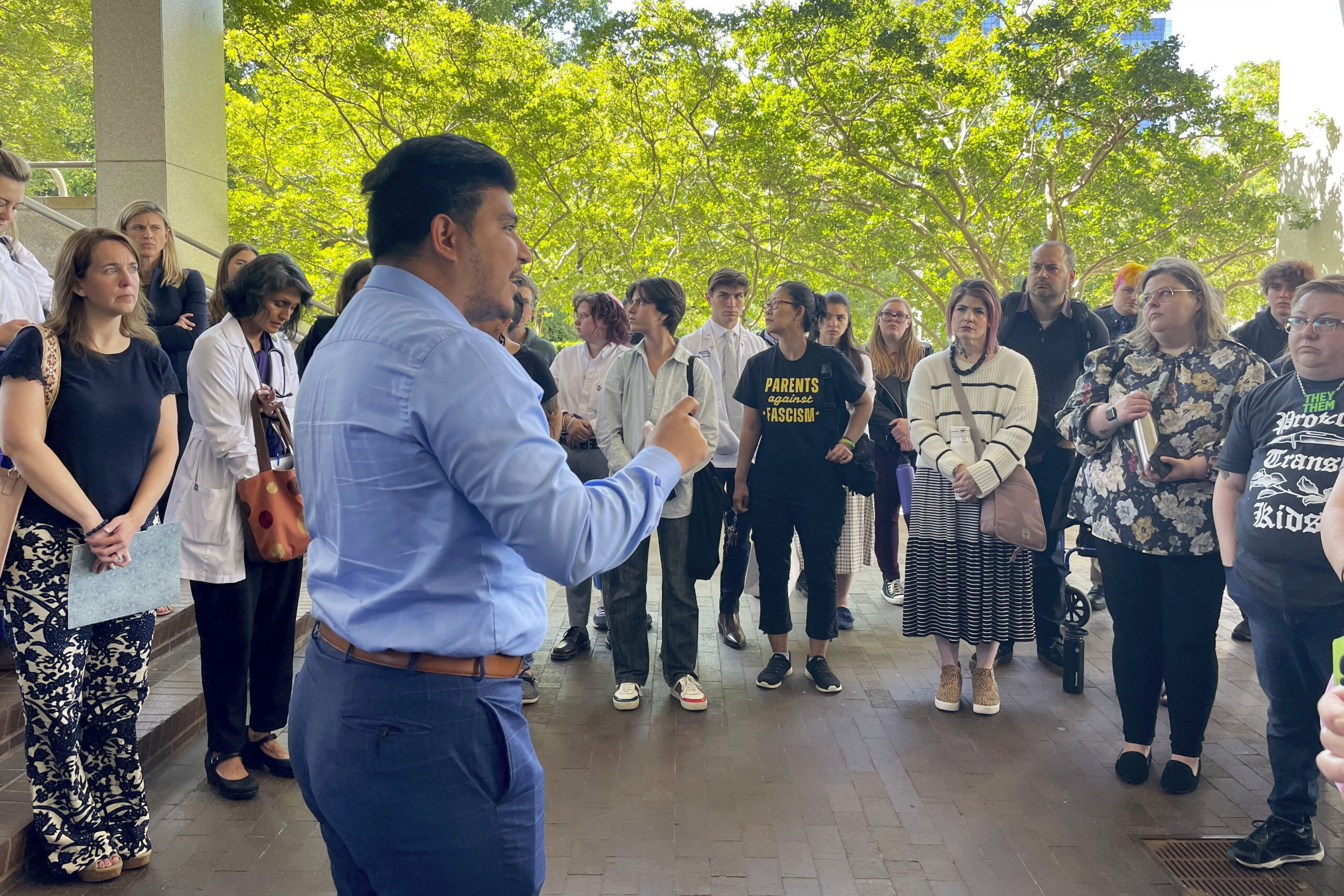
Carrboro Town Council member Eliazar Posada stopped by 97.9 The Hill’s studios on Wednesday. He and Aaron Keck discussed anti-transgender legislation currently in the North Carolina General Assembly, its effects on the community and Posada’s advocacy within the state government.
Check out highlights of the conversation below, which are lightly edited for clarity, and click here to listen to the full conversation!
Aaron Keck: While abortion is leading the headlines today, LGBTQ advocates are also continuing to sound the alarm about numerous anti-LGBTQ bills that are also moving through the legislature, including several that specifically target transgender youth under 18. The ACLU counts eight different bills in all. What should folks know about where things stand with? It’s a lot to keep track of with all of these different bills.
Eliazar Posada: Quite a bit. Nationally, we’re looking at over 500 bills introduced that are targeting the LGBTQ community. Everything from ‘trans students in sports’ bans. We’re talking about drag bans. We’re talking about “Don’t Say Gay” bills. We’re talking about removing or limiting gender-affirming care for folks, both young people and adults. So, quite a massive year when it comes to legislation against the LGBTQ community across the United States. We have tracked about 500 [bills] this year, and we’re in May now. We’re five months into the year, and we’re tracking over 500 bills when in previous years, that’s been a fraction of that.
And then here in North Carolina, EqualityNC and myself [are] trying to do a lot of this work. We tracked about 13 bills. [For] folks who don’t know the process in the General Assembly of North Carolina, there was this thing called crossover. There’s a deadline to introduce bills, and then there’s a deadline for that bill to cross from one chamber to the other. That happened last week. Last Thursday at midnight was a crossover deadline. So, in order for a bill to continue to be considered, it needed to pass from either the House to the Senate or from the Senate to the House by midnight Thursday, which meant the last couple of weeks have been cuckoo.
Aaron Keck: And also people should know: the crossover deadline exists, but Pirates of the Caribbean rules. It’s just a rough guideline for the most part.
Eliazar Posada: This is the wild, wild west up in the legislature. They could still grab a bill that made it past crossover, gut it, just delete everything in there and add a new legislation because, you know, reasons. It’s been quite a year. A lot of the work that we’ve been doing with several community advocates — EqualityNC and other folks — has been getting people to testify in committees. We know that the way that this process works or should work is, a bill’s introduced. It goes into committee. It’s heard in committee — multiple committees — and then a floor vote. And people and the community have a chance to present comments, testify in each of these committees. [But it] hasn’t really worked exactly like that. In this legislature specifically, after [the GOP] got the supermajority, we saw a lot of dirty tactics going on.
But out of those 13 [bills], that’s come down to eight we’re watching and six that are strictly against LGBTQ folks. That includes, as we already mentioned, the trans youth in sports ban. Three of those bills that we’re watching closely deal with that. Some of them are limiting gender-affirming care that can be received by folks, specifically young people. It’s just been one of those years, you know? Legislators coming for us.
Aaron Keck: Over and above the bills that are being talked about in the legislature and the tenor of the conversation in Raleigh, just day to day, what do trans kids face? I think a lot of people don’t really have an awareness in that.
Eliazar Posada: Let me put this in context. [In] a lot of the bills that are targeting trans youth, there’s basically two arenas, right? It’s gender-affirming care, which some members of the legislature are casting as permanent changes and horrible for kids who later come back and think that they didn’t need that. That’s a lie. Then we see the different bills that are targeting what trans kids can do in schools, [like] sports and group activities. And there’s been even a proposal to ban LGBTQ student groups. But what we see trans kids actually facing every day is… One, we see high suicide ideology within trans kids, specifically after some of these bills are introduced. There’s been several studies done where they’re tracking LGBTQ youth — but primarily transgender youth — where when bills like these are introduced, it just gives them another sense of, “You’re not welcome.” Something else that they need to fight against. And unfortunately, many young folks consider suicide, which is horrible.
We’re also looking at the fact that there is a very small number of folks and students in North Carolina who are transgender. We’re looking at less than 2 percent. Out of the thousands of students who are student-athletes in North Carolina, there’s currently two transgender girls in sports. We’re looking at bills targeting a very small number of students and young people in North Carolina. And of course, it’s very damaging. We’ve been able to organize a lot of folks to come and speak in committee. We’re hearing the stories. We’re hearing parents who are talking about the journey with their young person about self-identifying about finding who they are, and then having the bravery to tell their parents and then tell the world.
And then finding care. It can be hormone replacement care. It can be other things. Sometimes it’s just simply having conversations with a mental health professional and identifying that you are transgender and switching the shirt you wear, switching the kind of clothes you have. That has been lifesaving for a lot of young people. And that does not get said enough in the General Assembly: the fact that gender-affirming care is lifesaving for many of these kids.
Aaron Keck: I’ve spoken with folks from NCAAN — the North Carolina AIDS Action Network — before, and they talk about the conversations that they have with lawmakers, and specifically Republican lawmakers, who start out the conversation as not really being on their side. But you cast AIDS and HIV as a public health issue and step away from the culture war aspect of it, and you can get lawmakers on your side that way. How do you do it with Republican lawmakers? How do you approach the conversation in a way that you can forge common ground?
Eliazar Posada: It’s been more difficult this year than before. As you know, I’ve been having conversation with legislators well before I was an elected official. And I count several Republicans in the General Assembly as friends. Some of them, we went to college together. So, when we were having conversations about these topics in the past, it was really having conversations about, ‘what is a result of this? What is gonna happen? Maybe you get one thing done with your base, but what is the damage?’ Many folks don’t want to be bullies. You would be surprised, some folks really don’t want to be cast as bullies.
Having those conversations this year, it has been very different. Many folks that I know and have talked to multiple times — whether it’s immigration issues, whether it’s LGBTQ issues, whether it’s voting rights — we can have a conversation where we come to a consensus: you have your views, I have my views, but let’s just agree that this is just bad. Bad for North Carolina, bad for small businesses, et cetera. And it’s just very hard this year to find that common ground.
Aaron Keck: Why is that?
Eliazar Posada: We keep hearing the national talking points. And here’s one thing that I also want to clarify: although these bills are local to North Carolina, they’re not new to the United States. We’re seeing these copycat bills being pushed by the national Republican Party and conservative outlets across the United States. So there’s definitely some kind of coordinated effort to get a lot of these out there. And we also know that the Republican Party has done a lot of polling on these issues. They know that it energizes their base. It is a very hot topic in their party. And folks know that they can come after LGBTQ young people, particularly trans folks, and not face any consequences in their local elections. Because even Democrats who may be in favor of the LGBTQ community aren’t super involved or informed about what trans folks go through. It’s a minority within a minority. And then when we’re talking about trans folks of color, that’s another minority added to it.
And a lot of these bills are framed in the aspect of fairness, right? We’re talking about fairness for women in sports. We’re talking about all these keywords that make you think, “Okay, that’s a good thing.” So as we’re going through and navigating this legislative session, a lot of Republicans are being pressured by their leaders in the chambers, by their parties, to keep this right-wing idea and really focus on the fact that their polling is helping them.
We’re dealing with elected officials. And as one myself, reelection is something that we think about. Whether it’s because we want to maintain power or because there’s things that we want to do that we need to be reelected in order to do. So that’s a big consideration for folks. And if your base is moving to the right and you have a threat of being [defeated in a primary], that has a huge impact on folks.
Aaron Keck: So what do you do outside of lobbying the General Assembly to change hearts and minds out in North Carolina?
Eliazar Posada: We talk to folks. We’ve been bringing people from across the state to the General Assembly to talk about their issues. That’s one thing. But we’ve also been holding community briefings, partner briefings, having conversations with the community at all levels about what these bills are. Having some “Come to Jesus” moments, if I may, with folks about LGBTQ folks and trans folks. And also talking to businesses and talking to business owners and big businesses in North Carolina, to encourage them to not just educate their communities and educate their employees and themselves, but also use their vast power to advocate. If any of these bills become law, it’s limiting what their employees can do in their own communities. And we’re talking to big businesses in North Carolina just as well as small businesses. It’s a huge part of what makes the NCGA tick. We want to make sure that that happens.
Aaron Keck: There seems to have been a lot more business advocacy in 2016 and when HB2 was the big talking point, versus now when you’ve got eight or 13 or six or however many, but many different bills that are all targeting the same population. What’s the difference there?
Eliazar Posada: The key difference in ’16 is that, one, this was actually passed in ’16. We see a bill that becomes law. It’s banning folks from using the restroom. And then there’s other limitations to that legislation, but it actually became law. It was very limiting both in the public and the private sector. We saw a lot of businesses coming out against that. But we also saw a lot of flack. There was a lot of calls for boycotts, there was a lot of reputation lost for a lot of businesses, there was just a lot of money lost by the state.
Aaron Keck: I guess HB2 made North Carolina an outlier, in a way that a lot of these bills unfortunately don’t.
Eliazar Posada: Exactly. We’re looking at something that made North Carolina a standout kid. It was unique. It was “trendsetting” for the opposition. These are not. We’re seeing these across the United States. No matter which state you’re in, there’s at least one bill has been introduced. Doesn’t become law, but it’s been introduced to go against the LGBTQ folks.
Aaron Keck: If people want more information or they want to get involved in advocacy, where can they go? What can they do?
Eliazar Posada: You can follow EqualityNC. Twitter, Instagram, Facebook. Feel free to follow us. We are putting alerts and community briefings on there. You can also go to equalitync.org and sign up for our newsletter, as well as advocacy and volunteer opportunities.
Featured image via Associated Press/Hannah Schoenbaum
Chapelboro.com does not charge subscription fees, and you can directly support our efforts in local journalism here. Want more of what you see on Chapelboro? Let us bring free local news and community information to you by signing up for our biweekly newsletter.

